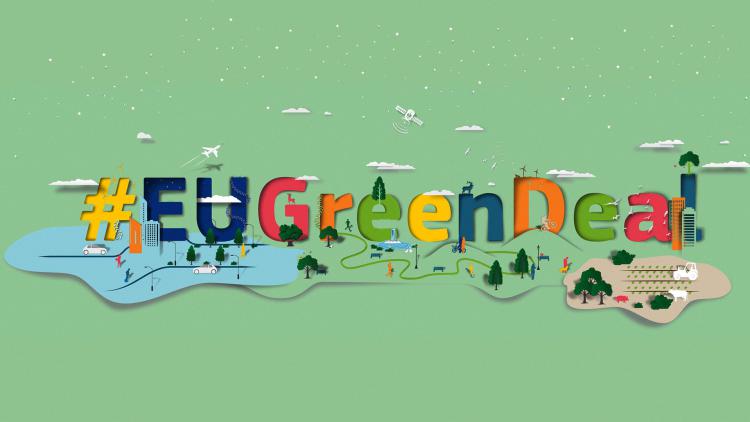Taken from: http://www.ensie.org/blog/2019/12/20/the-european-commission-presented-its-green-deal
On the 11th of December, the European Commission revealed its European Green Deal, one of its flagship initiatives for the next five years and further as it acts the carbon neutrality goal for 2050 in Europe.
Overall, the Green deal is a roadmap of actions to boost the efficient use of resources by moving to a clean, circular economy and with the aim to stop climate change, revert biodiversity loss and cut pollution. It also outlines investments needed and financing tools available, and explains how to ensure a just and inclusive transition. The ultimate goal is to set into legislation the political ambition of being the first climate neutral continent by 2050, in that order, the Commission will present in its first 100 days the first European Climate Law.
ENSIE welcomes the emphasis put on the fact that the ecological transition should be just and inclusive and the creation of a “Just Transition Fund”. The Commission took into account the potential trade-offs between economic, environmental and social objectives as it reaffirms: “The European Pillar of Social Rights will guide action in ensuring that no one is left behind.” Indeed, the transition needs to be inclusive or it will not be accepted by the citizens. In this context, it is important to take the most vulnerable into account: “providing access to re-skilling programs, jobs in new economic sectors, or energy-efficient housing”. As some of the most vulnerable people often hold low skilled jobs, they need support to adapt to changes in the economy, transferring from declining sectors to growing ones. This will be done thanks to the European Social Fund+, the Skills Agenda and the Youth Guarantee which will be updated to enhance employability in the green economy.
ENSIE welcomes the fact that the Commission put the citizens and civil society at the core of its communication. Indeed, the Commission is committed to engage with the public on climate action through the European Climate Pact, that should be launched in March 2020. Its goal is to encourage information sharing and to foster public understanding of the threat and the challenge of climate change and environmental degradation and on how to counter it; to develop both real and virtual spaces for people to express their ideas and creativity and work together on ambitious action, both at individual and collective level; and to build capacity to facilitate grassroots initiatives on climate change and environmental protection. Participation is one of the main principles of Social Economy and ENSIE is pleased to see that the European Commission is using this tool to implement the Green Deal as it will need a large support from the population.
Even though a lot of good things appeared in the Green Deal, ENSIE is a bit worried that Social Economy itself was not mentioned in the Communication. Indeed, Social Economy as it is often locally based and in line with circular economy is crucial for the ecological transition all the while working on the inclusion of the most vulnerable. Concerning Work Integration Social Enterprises, the sector they are the most active in is recycling, their work should be acknowledged by the Commission and included in the Green Deal. The Social Economy sector should be a leader of the ecological transition and be supported financially and legally by the EU.


